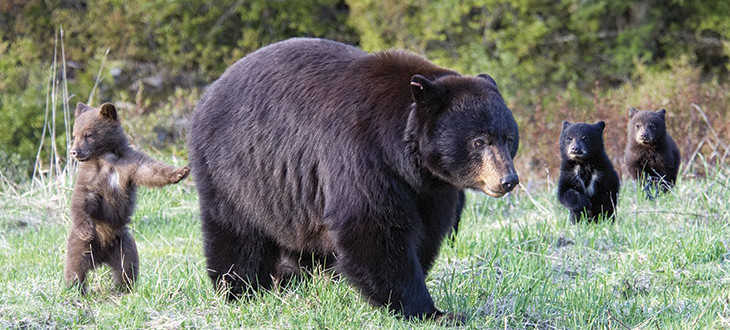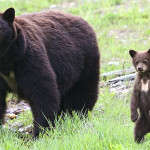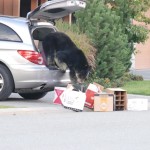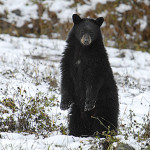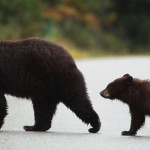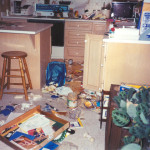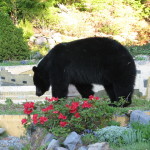Who’s to blame?
“Damn the Conservation Officers! They are killing our bears and orphaning cubs.”
I’ve heard that sentiment time and time again. Wouldn’t it make our lives a lot easier if we could just blame someone else for the problems in the world and get on with our day?
Our eagerness to blame those who pull the trigger, directly lifts the onus from those who are actually responsible – we the people, those who live, work and recreate in Whistler. Even those among us who are mindful of their own garbage and backyard attractants are not off the hook. You could help further by inspiring your friends and neighbours to do the same.
It’s interesting how creative our solutions can be when we defer blame to others. I’ve heard lots of solutions in the 18 years I’ve been educating people to be bear smart. Very few involve getting to the root cause of the problem – or better yet, in not creating a problem that others have to clean up for you.
As much as it would make for a happy ending, it is sadly not possible to relocate all bears that come into conflict with people – mostly because they just come back and exhibit the same behaviour again a few days later, but also because there just aren’t that many places to put the hundreds of bears that come into human-caused conflict each year across this province.
And no, it is not possible to have a large sanctuary somewhere that can house and feed the hundreds of bears that come into human-caused conflict each and every year.
While the issue remains enormous, the answer is simple – residential and urban spaces need to be unwelcoming to bears. Coexistence means leaving wild spaces for bears to flourish. We cannot coexist with bears in our kitchens.
It’s OK to commune with nature in nature. It’s not OK in your Whistler backyard, or in the village or even the lower bike park. The resort is too busy for that and there are too many people here who don’t understand bears.
Some people prefer to stick their head in the sand. I often wish I could do that too, even just for one day. Some people get their frustrations out on social media, which might relieve their anger temporarily, but does nothing to resolve the problem.
At the time of writing this letter, 10 bears are dead and three cubs have lost their mothers. Whoa!
“The universe is not short on wake up calls. We’re just quick to hit the snooze button,” according to Brené Brown.
The time is now. Do your part. Get off the sideline and get in the game. Stand in your values and your truth and do what needs to be done. Make your own property unattractive to bears. And if you truly care about bears, and I know you do (if you’re still reading this), you will also do your part to “say” it forward. Help others to get bear smart too.
Getting bear smart is a shared responsibility.
Officials can’t do it alone. We need your help. People need to deter bears from their properties themselves. Bears need an instant negative response from people when they are exhibiting inappropriate behaviour. Just like punishing your dog for peeing on the rug six hours later when you get home from work is ineffective, bears need to be caught in the act as well. There is a two second window for any mammal to make the link between cause and effect. That means the bear absolutely needs to receive a negative response while in the act of pulling down your birdfeeder.
People should get loud – bang pots and pans to teach bears to stay off human turf. Mean it! But do it from a safe place (with sufficient distance between you and the bear), and preferably with as many people as possible. Always give the bear a clear and unobstructed avenue of escape.
Allowing bears to feel comfortable in your backyard is akin to opening a kindergarten to teach bears that humans are friendly and shouldn’t be feared. Yes, that sounds like a utopian world, especially to me. But the fact of the matter is, it is not a realistic world. A bear’s behaviour almost always escalates, from accessing food outside until they get to the point of entering your home for food. At this point, it’s virtually impossible to “unlearn” a bear. They are killed.
Sharing your backyard with bears in Whistler is not coexisting, it’s an eventual death sentence for bears. People need to change the way they think about the issue.
What would our bear-smart community look like if each member was accountable for their actions, and accommodated the needs of bears and other wildlife (as well as the environment) into their daily routines? Hmmmm…
If you want to help, please contact me at info@bearsmart.com.

